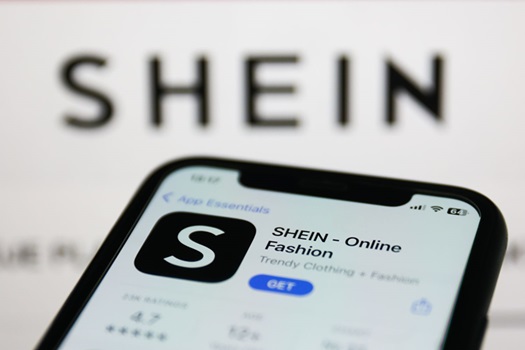China’s leading fast-fashion brand Shein is undergoing a comprehensive security review by China’s Cyberspace Administration (CAC) as it prepares for its much-anticipated initial public offering (IPO) in the United States. This scrutiny by the powerful internet regulator focuses on Shein’s supply chain operations within China, where the majority of its manufacturing and supplier network is based. The review specifically assesses how Shein manages and safeguards sensitive information related to its employees, partners, and suppliers in the region, with a particular emphasis on preventing data leaks overseas.
This review poses significant challenges for Shein as it navigates its IPO journey, especially given the escalating tensions between the United States and China. By undergoing this review, Shein is firmly positioning itself as a Chinese company in the eyes of Chinese regulators, a move that could impact its IPO plans, which it confidentially filed for in November.
The backdrop of strained U.S.-China relations adds another layer of complexity to Shein’s situation, as U.S. regulators are increasingly concerned about the potential transfer of sensitive customer data to the Chinese government. This concern reflects a broader trend of heightened scrutiny of Chinese companies operating in the U.S. market.
In response to these challenges, Shein is not only required to win approval from U.S. regulators but also needs to secure the blessing of Chinese authorities. This dual regulatory hurdle reflects the evolving landscape for Chinese companies seeking overseas IPOs.
The case of Didi Global, a major Chinese ride-hailing company, serves as a cautionary tale for Shein. Didi faced a similar security review by Chinese regulators shortly after its U.S. IPO in 2021, leading to its eventual delisting and a significant loss in shareholder value. This precedent underscores the potential consequences of failing to meet the regulatory requirements of both the U.S. and China.
However, Shein has taken proactive steps to address potential concerns. By relocating its headquarters to Singapore and refraining from selling its products in China, Shein aims to distance itself from the Chinese market, thereby reducing the perceived risk associated with handling sensitive data. This strategic move could work in Shein’s favor, as it demonstrates a proactive approach to regulatory compliance and risk management.
According to Drew Bernstein, an expert in U.S. and Asian capital markets, Shein’s proactive measures and avoidance of exposure to the Chinese market may position it more favorably in the eyes of regulators. Bernstein believes that Shein’s decision to seek China’s approval before proceeding with its U.S. IPO could help prevent a scenario similar to Didi’s downfall and enhance investor confidence in the company’s compliance with regulatory requirements.
As Shein navigates the complex regulatory landscape between the U.S. and China, its ability to address the concerns of both sets of regulators will be critical to the success of its IPO. By demonstrating a commitment to regulatory compliance and risk mitigation, Shein aims to lay the groundwork for a successful debut on the U.S. stock market.
(Source: WSJ | CNBC | Asia Financial)









